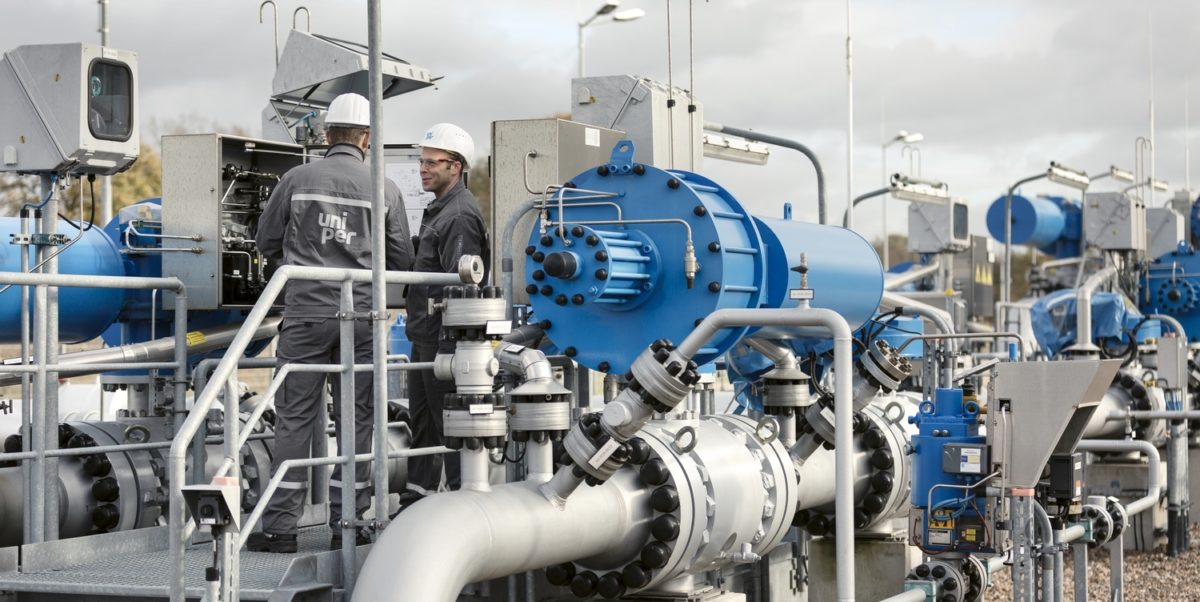The world's investors will take note of how far advanced a nation's hydrogen strategy is when considering backing renewables-powered green hydrogen, a representative of the World Bank told a recent virtual conference on Africa, with the amount of clean power capacity already installed also a factor.
Elizabeth Minchew, associate operations officer and consultant for the International Finance Corp (IFC), private-sector arm of the World Bank was participating in a two-day green hydrogen conference staged by trade bodies the Africa Solar Industry Association and the African Hydrogen Partnership.
With Morocco and South Africa among the African nations conducting a technical and economic assessment of hydrogen production, Minchew said: “If we're to look for an investment in green hydrogen in Africa, we will want to speak to people who have already taken that preliminary risk assessment and feasibility studies.
Off-takers
“When screening hydrogen investments, we check if [a hydrogen strategy] is cross-sectoral, i.e., does it really incorporate a variety of off-takers and industry players.” If the answer is yes, she said, off-taker risk is mitigated.
Investors will also consider how much renewables generation capacity is in place which could power hydrogen electrolysis, said Minchew.
“When we think about green hydrogen, we always think about solar,” she said. “If the renewable capacity is already built out, obviously that'll be more ideal. However, we're doing some analysis on offshore wind, for example; the technical potential is pretty immense across the region. So we're trying to take a similar approach with scaling wind, then we can maximize the resources and build this whole [hydrogen] ecosystem.”
Pipeline infrastructure and government subsidies would also be required if Africa is to export green hydrogen, said Damien Ricordeau, CEO of renewables financial advisory Finergreen.
Pipelines
“If you want to hit the €1.5-per-kilogram price range, you will not make it with tanks and ship vessels,” he said. “It will be too expensive so the only way is to have a pipeline. If you have an existing pipeline of gas, that's okay, but you'll need to build others as well.”
Building such infrastructure can take 5-10 years, according to the Finergreen founder, who said public subsidy would be required to squeeze out a profit from sustainable hydrogen sold for €1.50/kg.
The expectation among panelists was that nations which have gas pipelines already, such as Morocco, could enjoy a head start in the transition to hydrogen.
Economics and safety are the paramount concerns to consider when planning a hydrogen economy, according to Chakradhar Byreddy, renewables director at the Asia-Pacific division of U.S.-based certification company UL.
Popular content
Significant cost factors include the generation expense of renewable power and electrolyzer efficiency and capital expenditure (capex) cost, said Byreddy.
He added: “Regarding certification, we look at the economics and safety of the project. For instance, which countries have got the potential to supply 24/7 power to these electrolyzers, and what does it take to have 24/7 micro-grids running on [their] own?”
On electrolyzer development, Byreddy said: “There are lots of new technologies coming up. Currently, hydrogen is where solar was back in 2008.” The hope is that, as with solar, technological developments and economies of scale will drive down cost and ramp efficiency.
Location, location, location
On infrastructure, the UL representative said regulatory bodies are currently focusing on where hydrogen production will be established rather than how it will be transported.
The trick for Africa will be harnessing the plentiful solar and wind resources available–with the help of energy storage–and using data-driven analysis of hydrogen production capex costs to be competitive on the global stage, said Byreddy.
“Africa is still not up to the power from where we stand,” he added. “If you look at the bids in the Middle East, or bids in India or South East Asia, the cost of energy and tariffs is low. So they're so competitive in terms of the cost.”
Expertise
The renewables director said his organization is trying to help policymakers get to grips with hydrogen economics, adding: “We are working with the governments of Australia, India, and the U.S., mapping down all the key concerns and educating more on that. We have also developed a tool that companies and organizations can download, [which enables them to] input the cost parameters and understand how their cost structure looks.”
If nations want to pursue a blue hydrogen industry–using hydrogen generated by the burning of natural gas, for example to produce ammonia fertilizers–securing plenty of demand will again be a big factor, according to Byreddy.
He said: “If you are going to use these projects for fertilizer production, it's good to have, but is it bankable? By ensuring strong off-taker utilities and contractual agreements, companies can help drive down cost and even spread the risk to 15 or 20 years. However, how are we going to do it in the blue hydrogen economy? That should be the concern.”
This content is protected by copyright and may not be reused. If you want to cooperate with us and would like to reuse some of our content, please contact: editors@pv-magazine.com.


2 comments
By submitting this form you agree to pv magazine using your data for the purposes of publishing your comment.
Your personal data will only be disclosed or otherwise transmitted to third parties for the purposes of spam filtering or if this is necessary for technical maintenance of the website. Any other transfer to third parties will not take place unless this is justified on the basis of applicable data protection regulations or if pv magazine is legally obliged to do so.
You may revoke this consent at any time with effect for the future, in which case your personal data will be deleted immediately. Otherwise, your data will be deleted if pv magazine has processed your request or the purpose of data storage is fulfilled.
Further information on data privacy can be found in our Data Protection Policy.